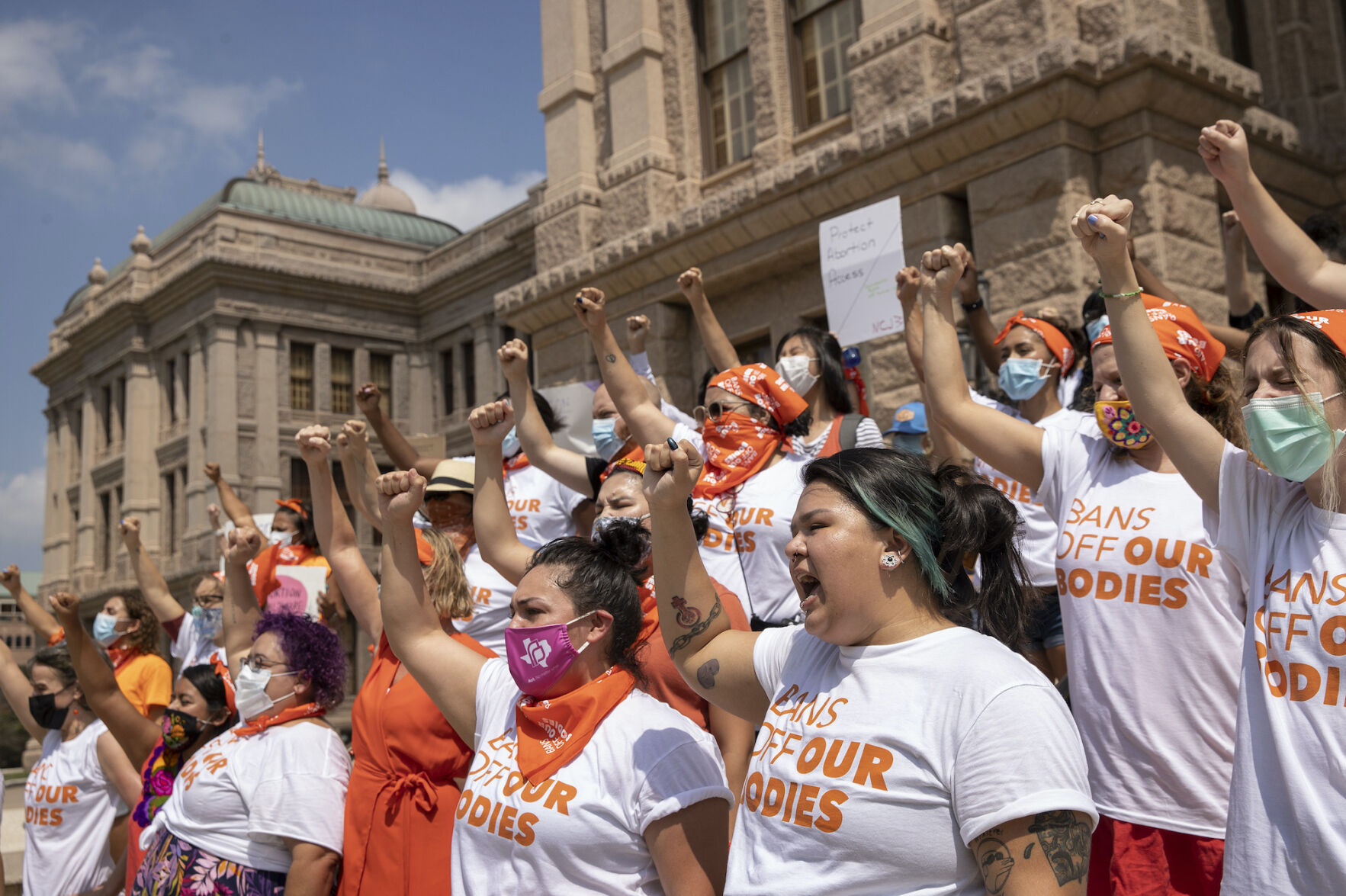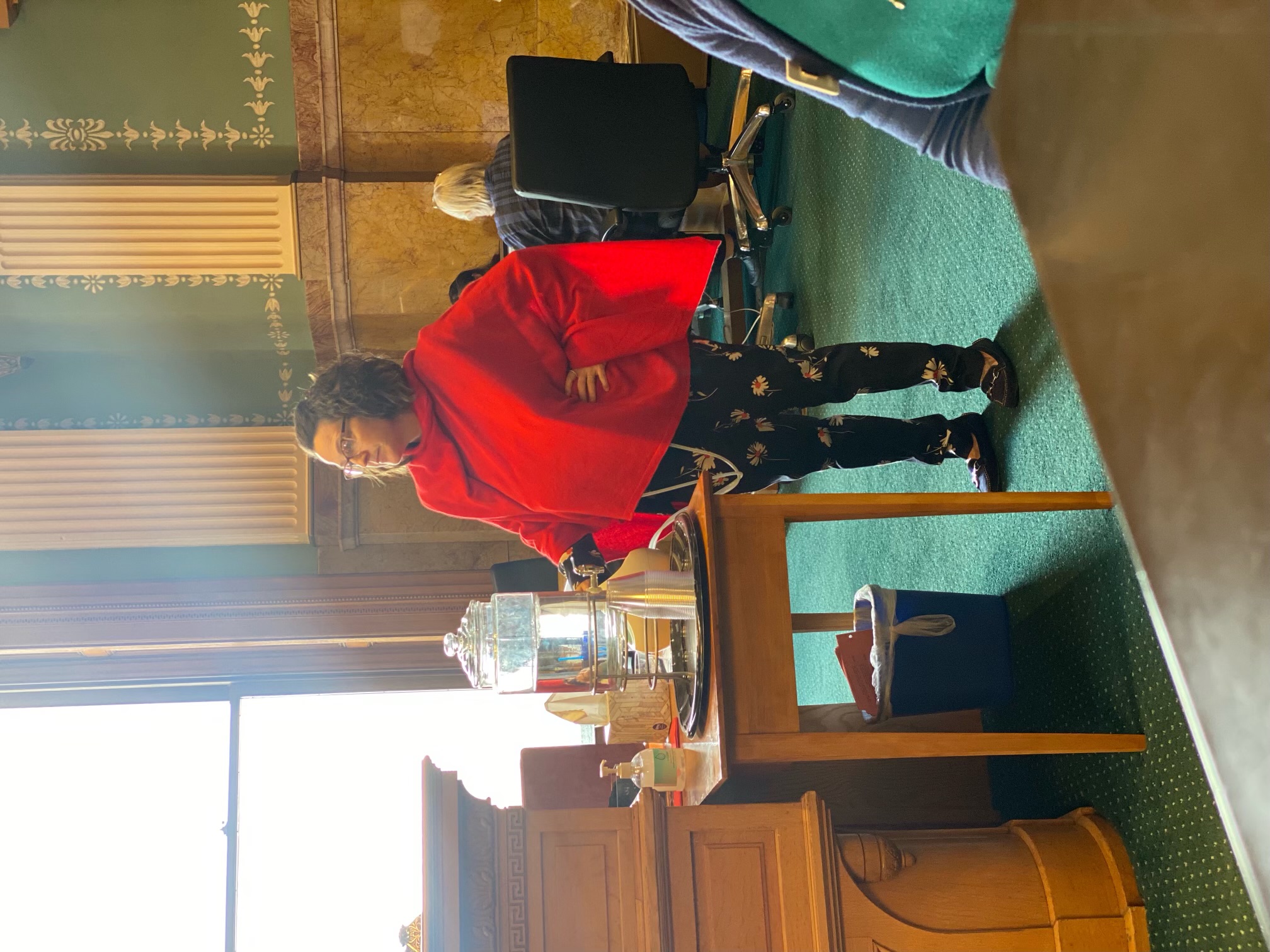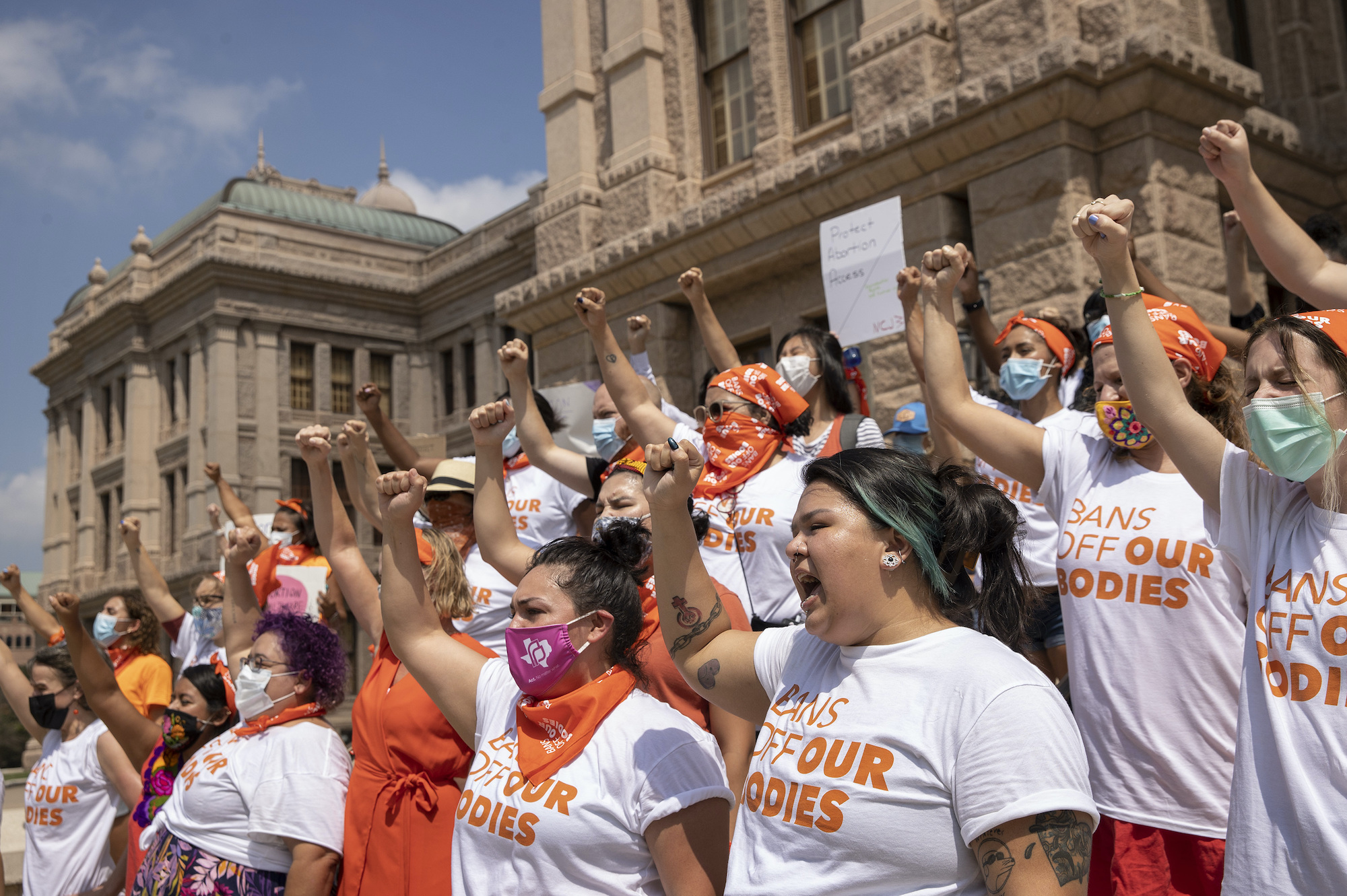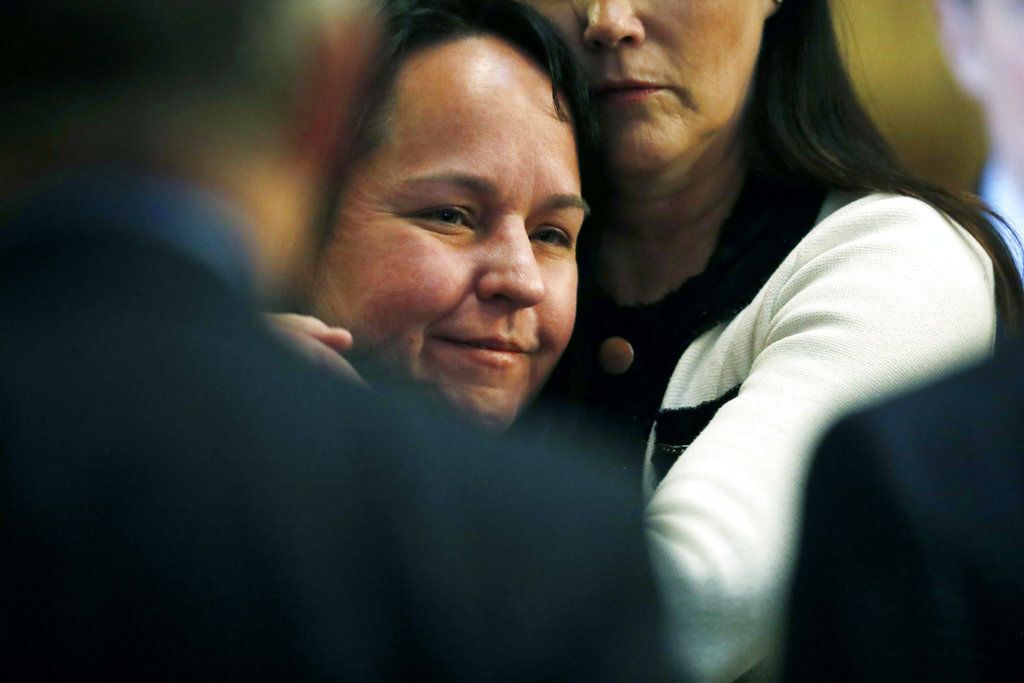House Democrats give preliminary approval to bill affirming right to abortion after 23-hour debate

The House on Saturday wrapped up more than 23 hours of debate – likely a state record – on a proposal to enshrine the unequivocal right to an abortion in state law.
The lengthy debate, which began Friday morning and ended at 10:17 a.m., is likely a General Assembly record.
House Bill 1279 was adopted on a voice vote and will be on the schedule for a final vote next week.
Known as the Reproductive Health Equity Act, HB 1279 would establish a fundamental right to continue a pregnancy and give birth, or to have an abortion. The bill also says fertilized eggs, embryos and fetuses do not have independent rights under the law. The bill would also prohibit state and local public entities from denying or restricting an individual’s right to use or refuse contraception, or to either continue a pregnancy or have an abortion.
The bill is prompted in part by the U.S. Supreme Court’s pending decisions, expected in June, in two challenges to anti-abortion laws in Mississippi and Texas.
Rep. Susan Lontine, D-Denver, who chaired the House Health & Insurance Committee’s 14-hour marathon hearing that ended just after 3:30 a.m. Thursday, said during Friday’s debate that the “hostile environment created by politicians across our country is the very reason why House Bill 1279 is so important.
“This is about protecting the rights of bodily autonomy because my body, the bodies of our daughters, belong to us, not the government,” she said.
House Republicans zeroed in on a number of provisions in HB 1279, such as concerns the bill could overturn the state’s parental notification law. They offered more than a dozen amendments, none successful, during the debate. That included an amendment from Rep. Kevin Van Winkle, R-Highlands Ranch, that attempted to strike back at a Democratic talking point: that abortion is health care.
Rep. Terri Carver, R-Colorado Springs, raised the parental notification issue, both on the House floor and during the committee hearing, including with an amendment during the hearing that was rejected as not fitting under the title. During the floor debate, a similar amendment was offered by Rep. Dave Williams, R-Colorado Springs, that received the same ruling.
Both House Majority Leader Daneya Esgar, D-Pueblo, and Rep. Meg Froelich, D-Greenwood Village, the bill’s co-sponsors, said HB 1279 would not interfere with parental notification, which requires a 48-hour notice to parents before a minor has an abortion, although the law does not block the minor from having the abortion.
Carver also said the bill is so broad that it could block protests against abortion clinics or interfere with local government zoning laws, which sponsors disputed.
Republicans warned that passage of HB 1279 could risk a situation in Colorado similar to what happened in Pennsylvania in 2010, when then-Dr. Kermit Gosnell was convicted of running a for-profit abortion mill that resulted in the death of a patient and three illegal late-term abortions. Gosnell, who was also convicted of drug dealing, is serving a life sentence.
On several occasions, Republican lawmakers read graphic descriptions of abortion procedures.
Lawmakers on both sides of the aisle shared personal stories tied to their reproductive histories.
Rep. Tonya Van Beber, R-Eaton, said she was born at 22 weeks and was not supposed to live.
“We risk the safety … of those who have no voice,” she told the House.
Reps. Andrew Boesenecker, D-Fort Collins and Tracey Burnett, D-Boulder, had different stories to tell. Boesenecker, formerly a Lutheran pastor, talked of the experience he and his wife had when she had a miscarriage. It was the first time he’s spoken of it publicly.
“I fear for another time, another political whim, when women won’t receive the reproductive health care my wife received in that moment, or being forced to register. It’s a fundamental right,” he told Colorado Politics.
Burnett suffered multiple miscarriages throughout her life. During her final pregnancy, she spent 12 hours fearing another miscarriage, and the pregnancy put her own life at risk, she told the House, the first time she’d ever spoken of it in public. A decision to end the pregnancy would have been hers and hers alone, she said.
“I kept hearing stories [from the other side] on late term abortions,” she told Colorado Politics, and, at one point, she left the floor too upset and offended to stay, she said.
First-year lawmaker Rep. Mandy Lindsey, D-Aurora, told Colorado Politics it’s been clear that Democratic lawmakers are very concerned about rollback of reproductive rights. She grew up thinking Roe v. Wade was settled, but now it’s under attack.
“We’re afraid and we have to be pro-active,” she said.
Lindsey, who has four teenagers, said she cannot fathom a day when her children don’t have the same rights she grew up with, adding that the details on why someone seeks an abortion is no one else’s business.
“We get to make the best decision for ourselves … we need to trust the people of Colorado to make these decisions for themselves and codify it,” Lindsey said.
Two of the four House members who are running for Congress participated in House business remotely and did not offer comments during the debate.
Reps. Yadira Caraveo, D-Thornton and Don Valdez, D-La Jara, are both vying for U.S. House primaries in June. The debate had been led throughout the night and into the early morning by Rep. Ron Hanks, R-Cañon City, who is running for the U.S. Senate Republican primary nod, and Rep. Dave Williams, R-Colorado Springs, who is challenging U.S. Rep. Doug Lamborn in June. The House chamber was also under tighter security throughout the debate on Friday and Saturday.
HB 1279 is the first abortion-related bill to reach the full House or Senate since 2003. The 2003 legislation put into state law the parental notification statute, tied in part to a 1998 voter-approved ballot measure on the same issue. The legislation was developed after the Tenth Circuit Court of Appeals concluded in 2002 that the ballot measure is unconstitutional.
The debate has been waged largely by the more conservative wing of the House GOP caucus.
Republicans’ filibuster included readings of court opinions, including Roe v. Wade and its successors; an opinion from John Eastman, the former CU professor of conservative thought; and, an amendment offered by Rep. Richard Holtorf, R-Akron, seeking to change the bill’s title from the “Reproductive Health Equity Act” to the “Anti-Birthday Act.” Republicans also attempted to add a petition clause to the bill to allow for a citizen initiative to challenge the law. The bill currently includes a safety clause, which would allow the law to go into effect upon signature of the governor.
The debate has not been without controversy apart from the bill’s topic.
Rep. Shane Sandridge, R-Colorado Springs, got into a confrontation around 5 a.m. with House Minority Leader Hugh McKean, R-Loveland, that included cursing.
Lawmakers also had to find ways to catch a little sleep and deal with parental issues during the debate. Rep. Dan Woog, R-Erie, slept in his Jeep; Rep. Matt Gray, D-Broomfield, napped while his two children slept in his office. Esgar, who has a eight-month-old daughter, had to pump breast milk during the night.















